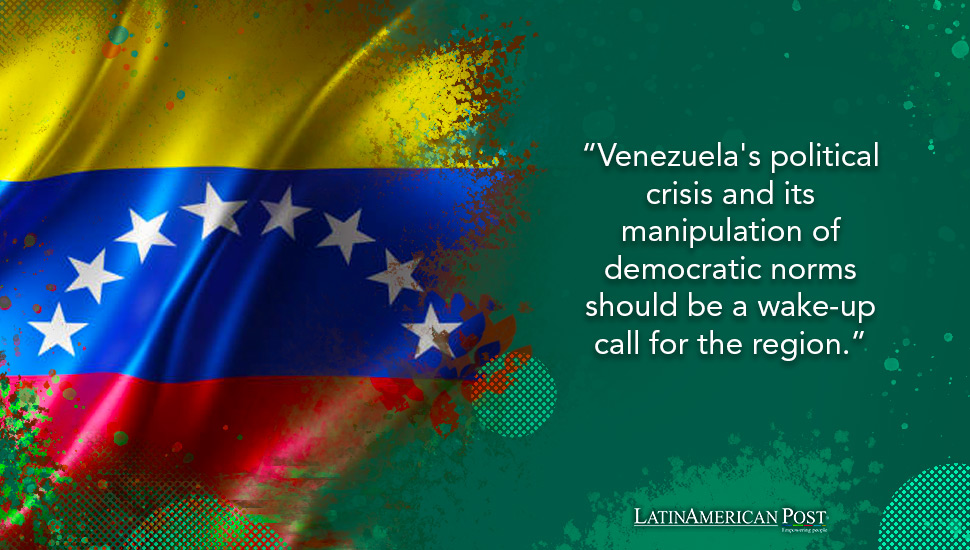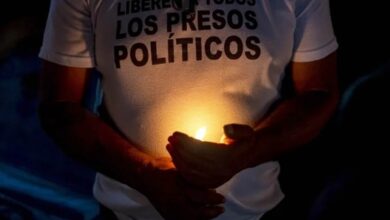Venezuela’s Latest Political Turmoil is a Mockery of Democratic Ideals

Venezuela’s political machinations, where opposition candidates face bans and strategic placeholders on ballots, exemplify a flawed democracy, raising concerns across Latin America about the integrity of electoral processes and the suppression of political dissent.
Challenges to Democracy in Venezuela
In Venezuela, the recent registration of a placeholder candidate by a significant opposition group for the upcoming presidential election starkly illustrates the erosion of democratic principles in the country. This maneuver, designed to circumvent the barring of the primary winner, Maria Corina Machado, from the election, exposes a system where the mechanics of democracy are manipulated, undermining the voters’ right to choose their leaders freely. This situation is not an isolated incident but part of a broader pattern of democratic backsliding that has implications beyond Venezuela’s borders, echoing across Latin America.
Machado’s landslide victory in the opposition’s nominating contest, followed by her disqualification due to an upheld public office ban, reflects a troubling trend of political interference and authoritarian tactics. Her alternate, Corina Yoris, also faced hurdles in registering, further highlighting the systemic barriers opposition figures face in Venezuela. This orchestration by the Venezuelan authorities, under the guise of legal and administrative processes, reveals a calculated strategy to suppress dissenting voices and maintain power, which is antithetical to the principles of democracy.
Using Edmundo Gonzalez, a former ambassador, as a ballot placeholder until a substitute can be named symbolizes the lengths the opposition must go to navigate the restrictive political landscape. This tactical maneuvering, while ingenious, underscores a grim reality where electoral fairness is compromised, and the political playing field is anything but level.
Latin America’s Democratic Challenges
Venezuela’s political crisis and its manipulation of democratic norms should be a wake-up call for the region. Latin American countries, with their varied history of democratic struggles and successes, must recognize the potential contagion effect of Venezuela’s flawed democracy. The area has seen its share of authoritarian rule, military coups, and rigged elections, which have left deep scars on the collective political conscience.
Countries like Nicaragua and Cuba in Latin America have also experienced similar democratic erosions, where the ruling parties have systematically dismantled opposition efforts, restricting the space for legitimate political contestation. In Nicaragua, President Daniel Ortega’s regime has been criticized for jailing opposition leaders and stifling political dissent, mirroring Venezuela’s tactics. Meanwhile, Cuba’s long history of single-party rule exemplifies the end of democratic suppression, where opposition parties are not just marginalized but virtually non-existent.
The international reaction, including from the United States and neighboring Latin American countries, reflects growing concern over Venezuela’s political trajectory. The re-imposition of U.S. sanctions following the obstruction of Machado’s candidacy is indicative of the international community’s frustration with Venezuela’s disregard for democratic norms. However, international censure alone is insufficient to catalyze change within Venezuela, especially when the ruling government leverages such external pressures to bolster its narrative of foreign meddling and sovereignty infringement.
Furthermore, the internal division within the Venezuelan opposition, as seen with Manuel Rosales registering as a candidate despite questions about his proximity to the ruling party, complicates the opposition’s ability to present a united front against Maduro’s regime. This fragmentation plays into the hands of the incumbent government, weakening the opposition’s collective bargaining power and diminishing their chances of effecting political change.
Upholding Democracy in Latin America
For democracy to thrive, not just in Venezuela but across Latin America, a concerted effort must be made to uphold electoral integrity, ensure political pluralism, and protect the rights of political actors to participate in the democratic process unimpeded. The Venezuelan case should serve as a cautionary tale, prompting regional actors and the international community to advocate more vigorously for democratic governance and support mechanisms safeguarding electoral processes.
The ongoing political saga in Venezuela, characterized by strategic electoral maneuvers, legal obstacles, and international sanctions, is more than a national issue; it represents a critical juncture for democracy in Latin America. The region’s countries must learn from Venezuela’s experience and work collaboratively to foster a democratic environment where the rule of law prevails and political pluralism is embraced. Only then can the shadow of authoritarianism be lifted, allowing democratic ideals to flourish across Latin America.
Also read: Urgent Reform Needed: Enhancing Mine Safety in Latin America After Venezuela Tragedy
Venezuela’s current political circumstances, marked by tactical electoral registrations and the suppression of opposition candidates, starkly contrast with the fundamental tenets of democracy. This not only undermines the democratic process in Venezuela but also sets a dangerous precedent for Latin America. The region must address these challenges collectively, advocating for transparent, fair, and inclusive electoral systems that empower citizens and ensure the legitimacy of their elected representatives.




